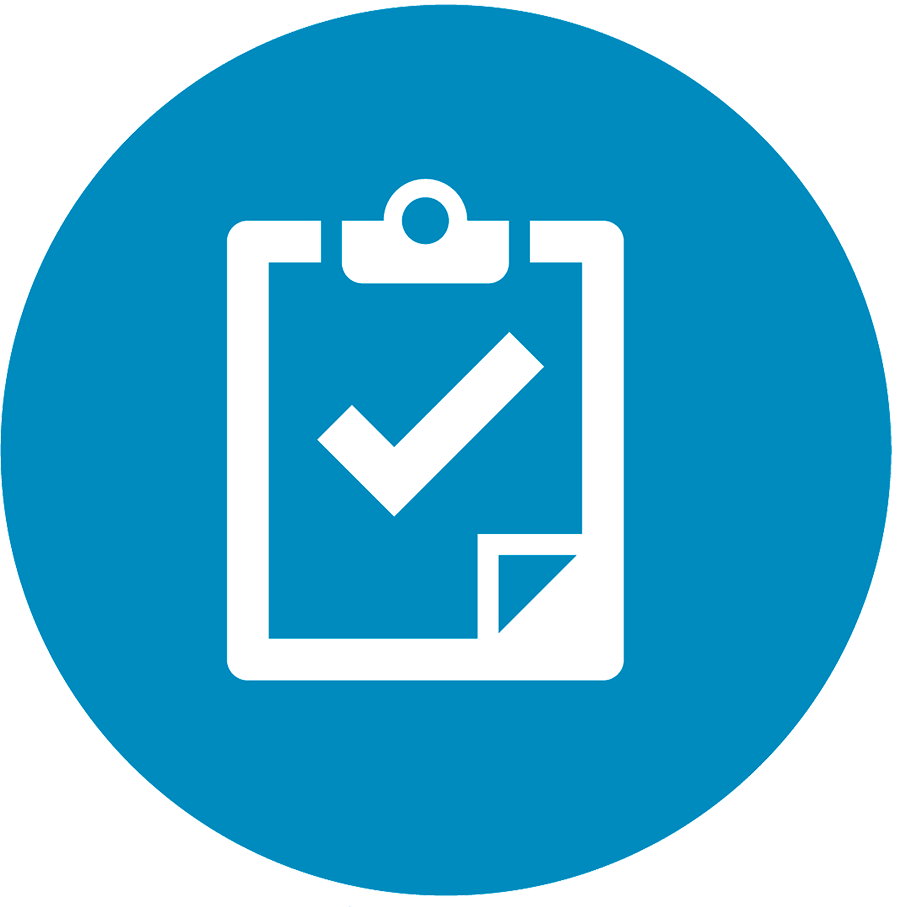The day of your TAVI
Before going to the hospital
Reminders for the day of your TAVI
- Do not eat anything before your procedure. You may drink clear fluids only.
- Remove all make-up, nail polish, jewelry and body piercings.
- Do not use perfume, cologne, scented cream, body lotion, deodorant or hair products. Sunnybrook is a fragrance-free hospital.
- Do not smoke any tobacco products or recreational drugs.
- Do not take any prescription, over-the-counter or herbal medications unless directed by your pharmacist or doctor.
What you should and shouldn't bring to the hospital
What to bring to the hospital
- The physical copy of this guide book
- Your Ontario Health Card
- Glasses, dentures, hearing aids and any walking aids you may need
- Sleep apnea machine (CPAP or BIPAP), if you have one
- Non-slip footwear
- Your prescription and over-the-counter medications in the containers they came in. These include pills, inhalers or puffers, injections, eye drops, herbal medicines and vitamins
- A copy of your legal documents for advanced directives and power of attorney for personal care, if you have them.

Please DO NOT bring
- Money
- Jewelry
- Electronic devices, such as tablets, computers, etc.
The hospital will not take responsibility for any lost or stolen items.
Once you get to the hospital
Registration
When you get to the hospital, check-in at the Outpatient Cath Lab area in the B-wing, third floor, room B3 12.
After you check-in, you will be asked to put on a hospital gown and all of your personal clothing will be given to your family. A nurse will then bring you to a room to prepare you for TAVI. The nurse will sanitize your skin, clip any body hair, and carry out any orders from the interventional cardiologist.
Note
Sometimes procedures are cancelled because there is someone else who is in a medical emergency situation. If your procedure is cancelled, you will be contacted by the TAVI Clinic and a new TAVI date will be booked as soon as possible.
In the Catheterization Lab
Before your procedure, nurses will assess you and an intravenous (IV) will be started in your hand. When your cardiologist is ready, you will be brought to the catheterization lab (cath lab).
You will participate in a safety checklist with your cardiologist and the health-care team before your procedure begins.
The procedure usually takes about 1 to 2 hours.
What will happen during my procedure?
- The puncture site at your groin will be cleaned and injected with a local anesthetic so you don’t feel any pain during the procedure.
- A small incision (cut) is made through your groin to give the cardiologist access to your artery.
- The cardiologist will feed a small tube (catheter) into your artery and up to your heart.
- The replacement valve is passed through the catheter, up to the heart and into your existing valve.
- Once in the proper position, the valve is expanded, and your old aortic valve is pushed to the side.
- The tube is removed and pressure is applied to the puncture site.
What will happen after my procedure is done?
After your procedure is done, you will go to the Cardiac Intensive Care Unit (CICU) on the third floor of the C-wing (C3) or Short Stay Unit (SSU), B-wing, third floor. You will be hooked up to a heart monitor and a nurse will check your blood pressure and puncture site frequently.
You will need to lie still for four to six hours after the procedure. In some cases, a clamp or sandbag will be applied to the puncture site for the first couple of hours to help with healing. You may experience some bruising or tenderness around the insertion site. This is normal and will get better in time.
Patients are typically discharged the next day.


Care closer to home
If you have been transferred to Sunnybrook for specialized care that you could not have received locally, you will be transferred back to the hospital closer to home or to St. John's Rehab when your specialized care is complete. For more information, visit sunnybrook.ca/repatriation.






